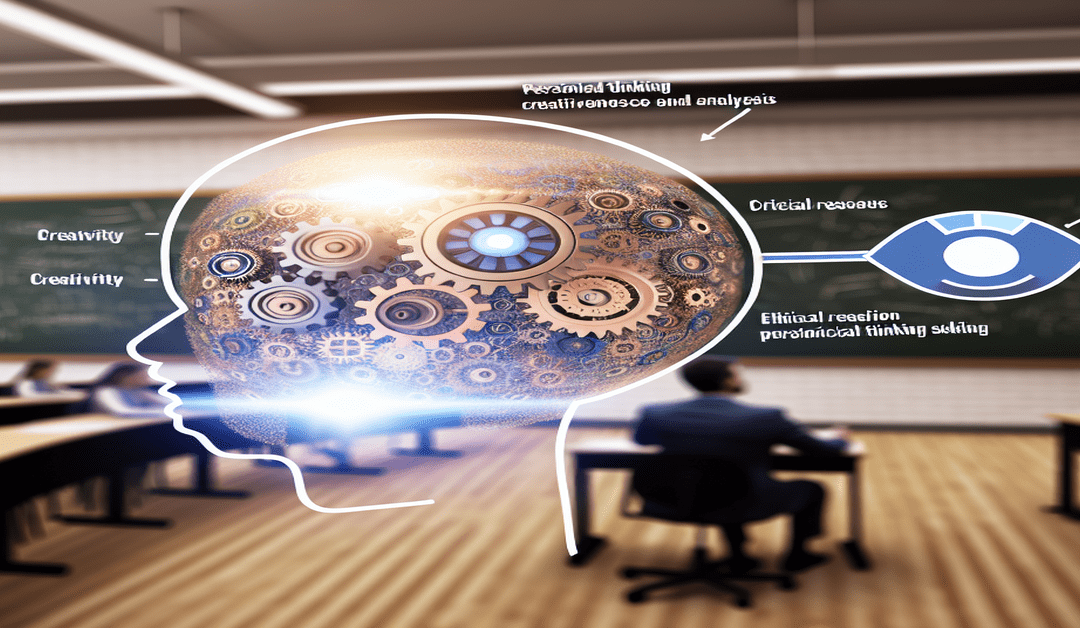The AI Conundrum: Balancing Innovation and Critical Thinking in Higher Education
As Artificial Intelligence (AI) continues to advance at a rapid pace, its impact on various aspects of our lives becomes increasingly apparent. One area where AI is making significant waves is in the realm of education, particularly in universities. While AI tools like ChatGPT offer exciting possibilities for enhancing learning experiences, they also raise concerns about their potential impact on students’ critical thinking skills. As we navigate this uncharted territory, it is crucial for educational institutions to carefully consider the implications of AI and develop strategies to ensure that students continue to cultivate essential skills in an AI-driven world.
The Double-Edged Sword of AI in Education
The integration of AI in education presents both opportunities and challenges. On one hand, AI tools can provide personalized feedback, support adaptive learning, and assist students in grasping complex concepts. These technologies have the potential to revolutionize the way we teach and learn, making education more accessible and efficient. However, the ease with which AI can generate answers and produce essays raises concerns about its impact on students’ critical thinking abilities.
The Threat to Critical Thinking
Critical thinking, the ability to analyze information, evaluate arguments, and draw well-reasoned conclusions, is a fundamental skill that universities aim to cultivate in their students. It is through engaging in deep thinking, questioning assumptions, and constructing original arguments that students develop their intellectual prowess. However, the increasing reliance on AI tools like ChatGPT threatens to undermine this process.
When students can easily obtain answers or generate essays with minimal effort, they may be less inclined to engage in the **rigorous mental exercises** that are essential for developing critical thinking skills. The temptation to take shortcuts and rely on AI-generated content can lead to a diminished ability to think independently and critically evaluate information.
Preserving Academic Integrity in the Age of AI
As AI tools become more sophisticated and capable of producing human-like outputs, universities face the challenge of maintaining academic integrity. Traditional methods of assessing student learning, such as essays and exams, may no longer be sufficient in an era where AI can generate content that is virtually indistinguishable from human work.
To address this issue, universities must develop new strategies and guidelines to ensure that students are genuinely engaging with the material and demonstrating their understanding. This may involve placing greater emphasis on **problem-solving, critical evaluation, and original thought** rather than rote memorization or straightforward answers.
Innovative Assessment Methods
One approach to preserving academic integrity is to focus on assessing skills that AI systems currently struggle to replicate effectively. This includes **creativity, ethical reasoning, and complex problem-solving**. By designing assessments that require students to demonstrate these abilities, universities can encourage the development of critical thinking skills while mitigating the impact of AI.
For example, instead of relying solely on traditional essays, professors can assign projects that involve real-world applications, case studies, or collaborative problem-solving. These types of assessments challenge students to think critically, apply their knowledge in novel ways, and engage in original analysis.
Striking a Balance: Harnessing AI’s Potential While Nurturing Critical Thinking
While the challenges posed by AI in education are significant, it is important to recognize that AI also has the potential to enhance learning experiences. By providing personalized feedback, adaptive learning pathways, and access to vast repositories of knowledge, AI can support students in their intellectual growth.
The key is to strike a balance between leveraging the benefits of AI and ensuring that students continue to develop critical thinking skills. Universities must be proactive in developing guidelines and strategies that promote the responsible use of AI while fostering an environment that values independent thought and rigorous analysis.
This may involve educating students about the limitations and potential biases of AI systems, encouraging them to critically evaluate the information generated by these tools, and emphasizing the importance of original thinking. By instilling a healthy skepticism towards AI-generated content and promoting the value of human insight and creativity, universities can help students navigate the complexities of an AI-driven world.
Conclusion
As AI continues to shape the landscape of education, it is crucial for universities to proactively address its impact on critical thinking skills. By developing innovative teaching strategies, redesigning assessment methods, and promoting the responsible use of AI, educational institutions can harness the potential of these technologies while ensuring that students continue to cultivate the essential skills needed for success in the 21st century.
The path forward requires open dialogue, collaboration, and a willingness to adapt to the changing realities of education in the age of AI. By embracing this challenge head-on and working together to find solutions, we can create an educational environment that balances innovation with the timeless values of critical thinking and intellectual growth.
#ArtificialIntelligence #CriticalThinking #HigherEducation
-> Original article and inspiration provided by South China Morning Post
-> Connect with one of our AI Strategists today at Opahl Technologies

